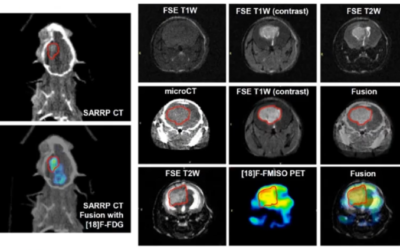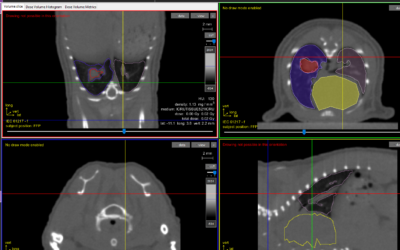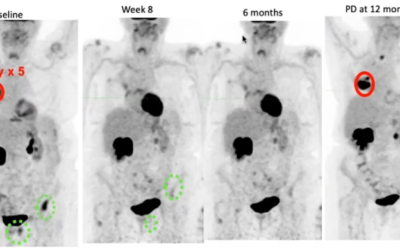Ionizing irradiation is a commonly accepted treatment modality for lung cancer patients. However, the clinical outcome is hampered by normal tissue toxicity and tumor hypoxia. Since tumors often have higher levels of active heat shock protein 90 (Hsp90) than normal tissues, targeting of Hsp90 might provide a promising strategy to sensitize tumors towards irradiation. Hsp90 client proteins include oncogenic signaling proteins, cell cycle activators, growth factor receptors and hypoxia inducible factor-1α (HIF-1α). Overexpression of HIF-1α is assumed to promote malignant transformation and tumor progression and thus might reduce the accessibility to radiotherapy.
Daniela Schilling, Christine Bayer, Wei Li, Michael Molls, Peter Vaupel and Gabriele Multhoff
Download Paper
SARRP Research Spotlight: Dr. George Wilson
George Wilson, PhD, Chief, Radiation Biology, William Beaumont Hospital Radiation Biology focuses on translational research in the areas of new treatments, combined modalities, and stem cell biology. The group has a heavy emphasis on incorporating molecular,...






